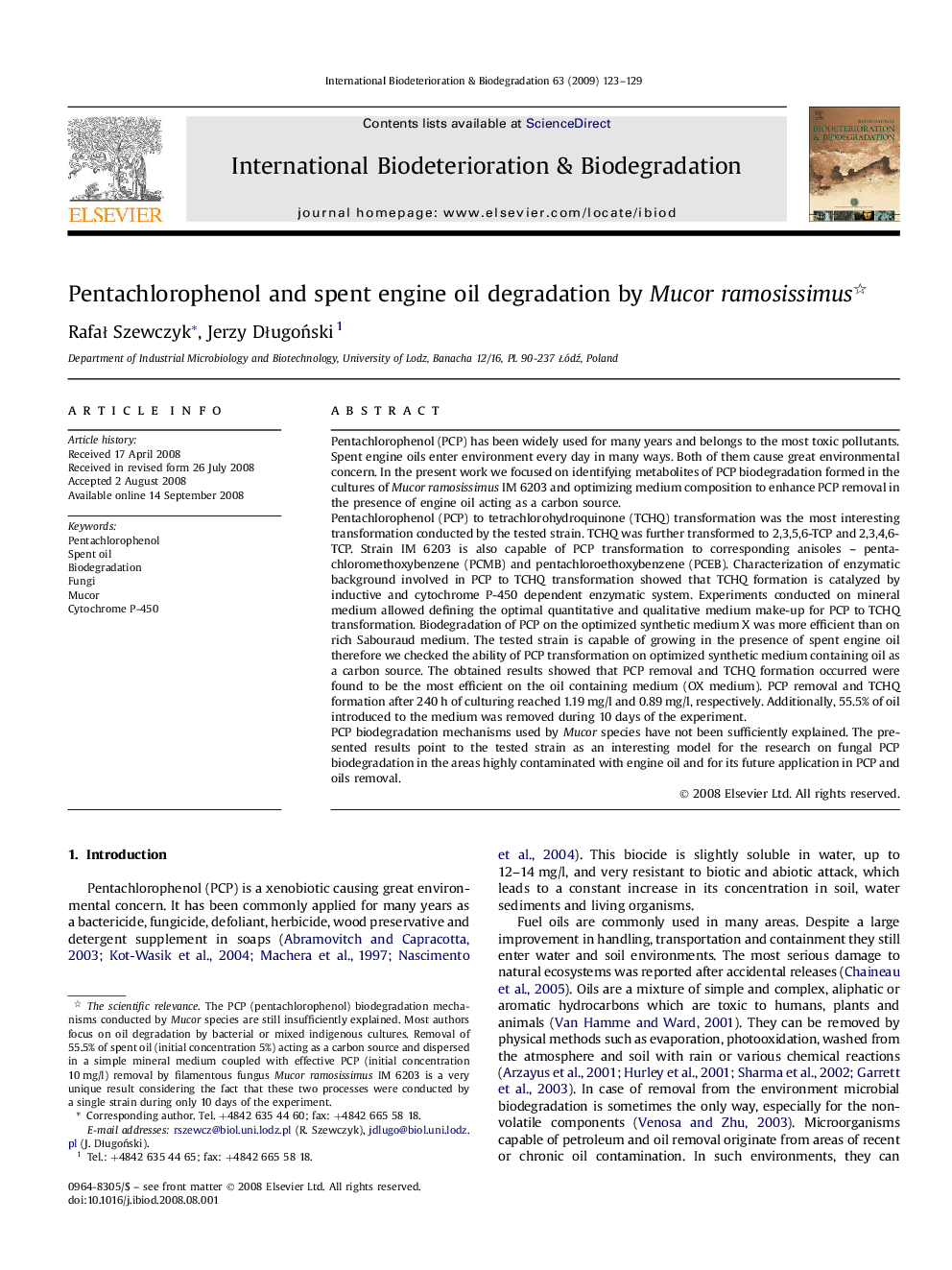| کد مقاله | کد نشریه | سال انتشار | مقاله انگلیسی | نسخه تمام متن |
|---|---|---|---|---|
| 4365428 | 1301759 | 2009 | 7 صفحه PDF | دانلود رایگان |

Pentachlorophenol (PCP) has been widely used for many years and belongs to the most toxic pollutants. Spent engine oils enter environment every day in many ways. Both of them cause great environmental concern. In the present work we focused on identifying metabolites of PCP biodegradation formed in the cultures of Mucor ramosissimus IM 6203 and optimizing medium composition to enhance PCP removal in the presence of engine oil acting as a carbon source.Pentachlorophenol (PCP) to tetrachlorohydroquinone (TCHQ) transformation was the most interesting transformation conducted by the tested strain. TCHQ was further transformed to 2,3,5,6-TCP and 2,3,4,6-TCP. Strain IM 6203 is also capable of PCP transformation to corresponding anisoles – pentachloromethoxybenzene (PCMB) and pentachloroethoxybenzene (PCEB). Characterization of enzymatic background involved in PCP to TCHQ transformation showed that TCHQ formation is catalyzed by inductive and cytochrome P-450 dependent enzymatic system. Experiments conducted on mineral medium allowed defining the optimal quantitative and qualitative medium make-up for PCP to TCHQ transformation. Biodegradation of PCP on the optimized synthetic medium X was more efficient than on rich Sabouraud medium. The tested strain is capable of growing in the presence of spent engine oil therefore we checked the ability of PCP transformation on optimized synthetic medium containing oil as a carbon source. The obtained results showed that PCP removal and TCHQ formation occurred were found to be the most efficient on the oil containing medium (OX medium). PCP removal and TCHQ formation after 240 h of culturing reached 1.19 mg/l and 0.89 mg/l, respectively. Additionally, 55.5% of oil introduced to the medium was removed during 10 days of the experiment.PCP biodegradation mechanisms used by Mucor species have not been sufficiently explained. The presented results point to the tested strain as an interesting model for the research on fungal PCP biodegradation in the areas highly contaminated with engine oil and for its future application in PCP and oils removal.
Journal: International Biodeterioration & Biodegradation - Volume 63, Issue 2, March 2009, Pages 123–129